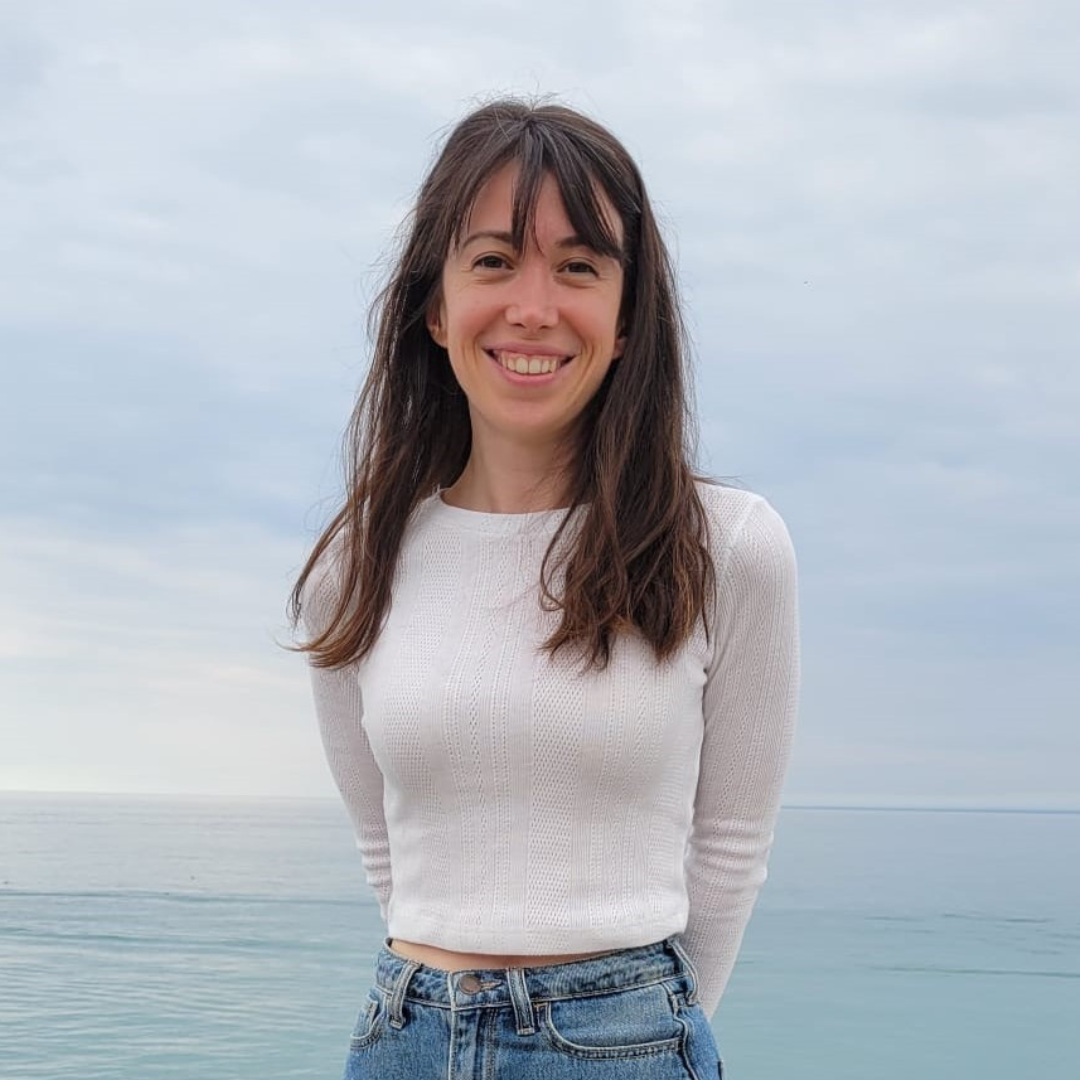Ezgi (she/her) has an incredibly impressive resume: she holds Bachelor’s and Master’s degrees in Chemistry and a PhD in Civil and Environmental Engineering. She’s now doing a postdoc at Waterloo, with a focus on mitigation of greenhouse gases from sewer systems.
As we celebrate UN World Water Day on March 22, I thought she’d be the perfect feature for this month’s Sustainability Story.
Our conversation dove into Ezgi’s journey from academia to the oil industry and back, her interest in thrifting and clean cosmetics, and the importance of individual behaviour change in protecting water.
- Tell us about yourself.

My name is Ezgi Demircan Ozelcaglayan and my background is in chemistry. I graduated from university about 10 years ago in Turkey. After getting my Master’s in chemistry, I worked for five years in the oil industry: I was responsible for wastewater analysis. I decided to return to academia since I was interested in the environment - water in particular. I completed my PhD at Waterloo, where I attended the Collaborative Water Program, and am now working as a postdoc in civil engineering.
The Collaborative Water Program is an interdisciplinary graduate program where students from different departments come together to learn about ways to tackle global water challenges. We had the chance to see the Grand River all the way to Lake Erie and connect with conservation authorities, companies, water treatment plants, and more. It was nice to get a better perspective on the issues and see the importance of having many disciplines working together to tackle issues. I highly recommend it!
Outside of academia, I’m interested in sustainability. I love thrifting and upcycling furniture. I was also a volunteer writer at a Turkish wellbeing company, and I wrote articles about sustainability and water.
- What inspired your interest in water and sustainability?
My interest in sustainability started with my passion for clean cosmetics. I learned how toxic chemicals in makeup products are dangerous for our health and started making my own products at home. As I worked on the removal of micropollutants from water during my PhD, I had a chance to learn more about the environmental impact of these chemicals due to human consumption and become even more interested in water and sustainability.
I was also inspired by three people. The work of Melissa Schaefer, a wildlife photographer, showed me the importance of realizing that we share this planet with other living things. Second is American marine biologist Dr. Ayana Elizabeth Johnson. The most important thing I learned from her was to stay positive, since it’s not easy to avoid internalizing all the bad news we see every day. The third person is Robert Bilott. He’s an environmental attorney who filed a lawsuit against DuPont for chemical (PFAS) contamination. They all prove that we need all kinds of disciplines to work on environmental issues.
My time in industry gave me the inner motivation to do my PhD. Working in the oil industry, I saw these environmental issues firsthand. We need conscious people in decision-making positions in the industry since there comes a point where you need to decide whether to prioritize the environment or money. While I don’t want to go back to that field, I learned a lot and I think I can be more beneficial now to the environment with my experience in that industry.
- What are you working on now?
My current postdoc project is related to the mitigation of greenhouse gases from sewer systems. I love that the project focuses on climate action and material science. I want to eventually work for an environmental NGO so that I can use my experience for a better purpose.
I don’t think water resources are appreciated enough in Canada. People probably wouldn’t understand this if they’ve never lived in a water deficient country or have experienced droughts. The places I’ve been to here were all magical. The more time we spend in nature, the more conscious we become about these issues. Canada is a great place to feel a connection with nature.
Water is a source that is spiritual in almost all religions and cultures. It’s so important, but we’ve kind of forgotten what it means to us. That’s why I called my blog Reconnect. We’re so disconnected right now, which is why most of us don’t care enough about the environment. We can’t see that without reconnecting with nature.
- What advice do you have for people looking to live more sustainably?
I think the biggest barrier to action is convenience. We choose what’s more convenient and make our decisions based on what we see or hear from others. Changing our daily decisions and lifestyle are critical steps to achieving healthy water systems, air, and soil.
I suggest looking at the things that you own in your home: what kinds of materials do you have mostly? That will give you an idea of your impact on the environment. This would help you to understand where you can begin to change your decisions or lifestyle with simple steps.
I also recommend thrifting and generally getting stuff secondhand. Ditch plastic whenever possible. Try to find ways to reduce the number of items you buy for specific purposes, such as cosmetics, cleaning products, party supplies or electronics. Adopting a minimalist lifestyle can be a step to reduce your environmental impact as long as sustainable materials are preferred.
- How can readers learn more about your work?
I am looking to host events such as workshops and online courses about micropollutants, minimalism, and clean beauty. I also have an Instagram account where I share my ideas about upcycling, cosmetics, minimalism, and sustainability.